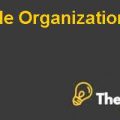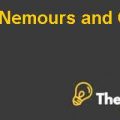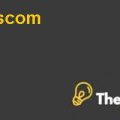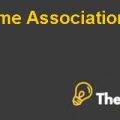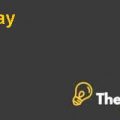DELIMMA FACED BY BERT WHILE TEACHING IN KOREAN SCHOOL Case Study Solution
The case illustrates the cultural and ethical dilemma faced by Bert, a Canadian citizen, who moved to SouthKorea for his second job. Since, Bert experienced an amazing job experience during his first job, which he joined after detailed research on the company, he expected the second job to be the same. However, Bert missed to inquire & search about the company and joined in hastes, probably because of high salary as compared to Canada. Also, he missed to identify the precursors of threatening situation in school,which was represented through a total new hiring of teachers for new educational year. However, the problem arose when Bert received his pay cheque and the response of Larry (the head of school) on his request for clarification.Also, Bert could not do anything against the issue, due to high power and support of government towards employers. Since, the Visa and passport of Bert remain with employer, he could not look or apply for any other job in Korea.
Keywords: Ethical Dilemma, Cultural conflict, High power culture, Long distance hierarchy, Government regulations.
Situational Analysis
The case illustrates the cultural conflict and distance Bert faced, during his tenure in EZ-AB school. EZ-ABC school is a public school, located in SouthKorea, and served to teach Korean as the second language. Bertz after joining the school as his second job, smell the fish and tried to figure out the issue. Bertz along with two other members Ian and Shawn joined the school, Most of teachers in EZ-ABC school were in late 20’s with no female staff. Though many rumors about the school has been heard by Bertz he neglected them, due to over-grow brand image of the school in the market, along with a handsome salary package. Which has been quite huge than other Canadian schools, also the income tax remain low, as compared to Canadian market.
Bertz joined the school with a positive attitude and expectation and ignored to search about the school policies. During the first year, Bertz had a direct interaction with Sandy- a doctor of education, serving as the principal of the school and Mr. Lee who owned the school. Sandy depicted an autocratic traits, which involved direct orders and one way communication.The school had a high power and high distance culture unlike Canada, which made the communication flow vertical and developed an autocratic style of management in the school. Also, the management has been weak in managing the people and there has been a rapid hiring and firing policy in the school. In addition, the culture in school depicted a non-liniment and stressed environment, which signaled Bertz about the poor and rough management style in the school. Also, such culture lead to high flight of employees, analyzed through the hiring of 19 new teachers for the next batch. Though sandy has been an active player in the school management, Mr.Leedepicts the actual driving force for such culture and environment in the school.
DELIMMA FACED BY BERT WHILE TEACHING IN KOREAN SCHOOL Harvard Case Solution & Analysis
Since, the Korean government supported the employer’s rights, it made the employees and especially lee to over sabotage the employees and reform its own rules and working style. The case also depicts the weak law and order situation, with the prime focus on the weak labor laws.Which have encouraged him employers, to exploit the employees for their own interest.
The symptoms of the problem are:
- The weak human resource management with no job security and intense competition, which created an individualistic culture in the school.
- The autocratic style of management, leading to weak communication, which in turn effects the value and uniformity of services in the long ruin of school.
- The one-sided governmental laws to support the employers made Mr. lee to rule out the employees request and rights, knowing that the employee are weaker in Korean country.
- The scarcity of jobs in South Korea, made the employers strong in position, as they have the clear knowledge of the supply and demand of job in the market.
- The strong brand image of school along with high salary offered, sabotaged the employees’ rights and concern, as the package remain the driving force for many employees to work with the school.
Critical Inference
The organizational culture practiced in Korea is high distance culture,which develops the autocratic management style in the organization.Due to such style, the communication flow remain top to down, which leads to confusion, flight of employees and dis owner ship and involvement in the school.Leading to non-uniform performance over the period of time, effecting the brand image of the school. Since, the school have a weak human resource management and autocratic management style, the school offers no job security and propagates individualistic goals rather than collective goals. These individualistic approach creates intense competition among the employees, refraining them to share and help others,thus leading to non- uniform performance and flight of employees. In addition, due to such organizational culture and individualistic approach, EZ-ABC offered no job security and practiced immediate firing without offering notice period. This led to poor performance and demotivation among the employees of the school and out-perform.In order to make the brand name stronger in market, which would offer a differentiation point, hence accumulating to competitive advantage in the market..................
This is just a sample partial case solution. Please place the order on the website to order your own originally done case solution.


